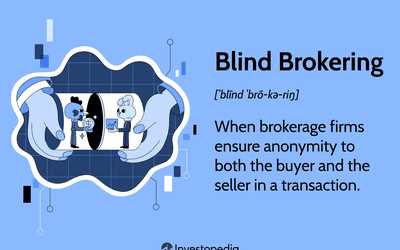Dealers: Definition, Meaning, and Comparison

A dealer is a financial intermediary who buys and sells securities, such as stocks, bonds, and derivatives, on behalf of their clients. They act as market makers, providing liquidity to the market by offering to buy or sell securities at a quoted price. Dealers can be individuals or institutions, and they typically operate in the over-the-counter (OTC) market.
What is a Dealer?
A dealer is a participant in the financial market who facilitates the buying and selling of securities. They play a crucial role in ensuring the smooth functioning of the market by providing liquidity and price discovery. Dealers make money through the spread, which is the difference between the buying and selling price of a security. They take on the risk of holding securities in their inventory and aim to profit from the price movements.
Dealers differ from brokers in that they take ownership of the securities they trade. When a client wants to buy or sell a security, they execute the transaction directly with the dealer, who then becomes the counterparty. In contrast, brokers act as intermediaries and facilitate the transaction between the buyer and seller without taking ownership of the securities.
Comparison to Brokers
While dealers and brokers both facilitate the buying and selling of securities, there are some key differences between the two:
| Dealers | Brokers |
|---|---|
| Take ownership of securities | Do not take ownership of securities |
| Act as market makers | Act as intermediaries |
| Provide liquidity to the market | Do not provide liquidity |
| Profit from the spread | Earn commissions or fees |
Overall, dealers and brokers play different roles in the financial market. Dealers take on more risk by holding securities in their inventory and aim to profit from price movements, while brokers facilitate transactions without taking ownership of the securities. Both are essential for the functioning of the market and provide valuable services to investors.
What are Dealers?
Dealers are financial intermediaries who buy and sell securities, such as stocks, bonds, and derivatives, on behalf of their clients. They act as market makers, providing liquidity to the market by offering to buy or sell securities at quoted prices. Dealers can be individuals, firms, or financial institutions.
Role of Dealers
Dealers also provide various other services to their clients, such as research and analysis, investment advice, and portfolio management. They help investors navigate the complexities of the financial markets and make informed investment decisions.
Differences between Dealers and Brokers
Dealers and brokers are both involved in the buying and selling of securities, but there are some key differences between the two. While dealers buy and sell securities on their own behalf, brokers act as intermediaries between buyers and sellers. Dealers earn profits from the spread, while brokers earn commissions or fees for their services.
Dealers vs Brokers: A Comparison
Definition and Meaning
A dealer is an individual or a firm that acts as a principal in a transaction. They buy securities from sellers and sell them to buyers, earning a profit from the spread between the buying and selling prices. Dealers typically hold an inventory of securities and actively participate in the market by providing liquidity.
On the other hand, a broker is an intermediary who connects buyers and sellers but does not take ownership of the securities. They earn a commission or fee for facilitating the transaction. Brokers do not hold an inventory and primarily focus on executing orders on behalf of their clients.
Roles and Responsibilities
Dealers have a more active role in the market compared to brokers. They actively quote bid and ask prices, providing liquidity to the market. Dealers also take on market risk by holding an inventory of securities, which they may need to sell at a loss if market conditions change.
Brokers, on the other hand, act as intermediaries and execute orders on behalf of their clients. They do not take on market risk and focus on finding the best prices and executing trades efficiently. Brokers also provide research and advisory services to their clients, helping them make informed investment decisions.
Regulation and Oversight
Both dealers and brokers are subject to regulation and oversight to ensure fair and transparent markets. However, the specific regulations and oversight may vary depending on the jurisdiction and the type of securities being traded.
Brokers, on the other hand, are primarily regulated to ensure fair and ethical practices in executing trades on behalf of their clients. They may need to obtain licenses and certifications to operate legally and may be subject to periodic audits and compliance checks.
Conclusion

Emily Bibb simplifies finance through bestselling books and articles, bridging complex concepts for everyday understanding. Engaging audiences via social media, she shares insights for financial success. Active in seminars and philanthropy, Bibb aims to create a more financially informed society, driven by her passion for empowering others.
